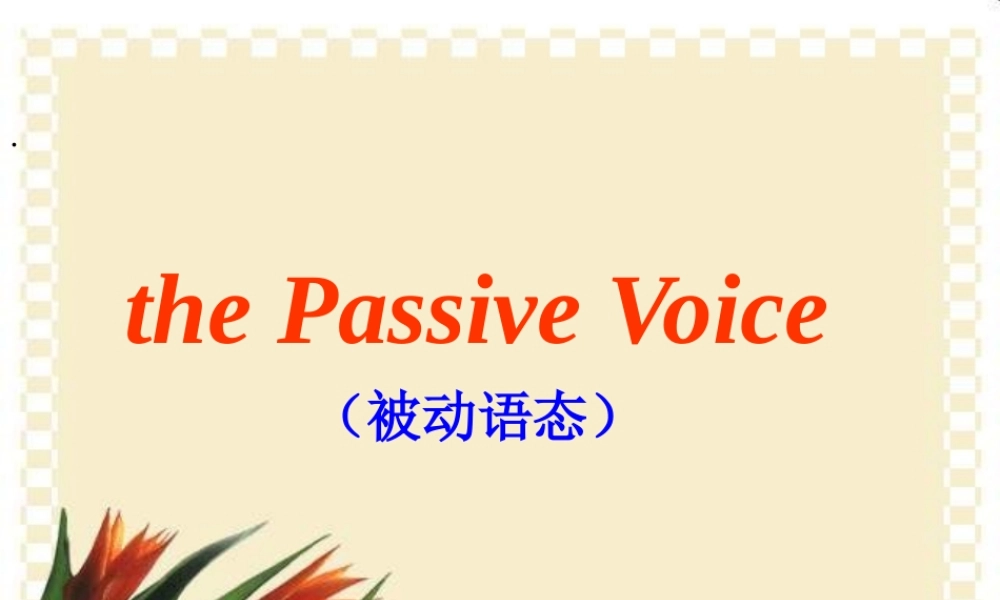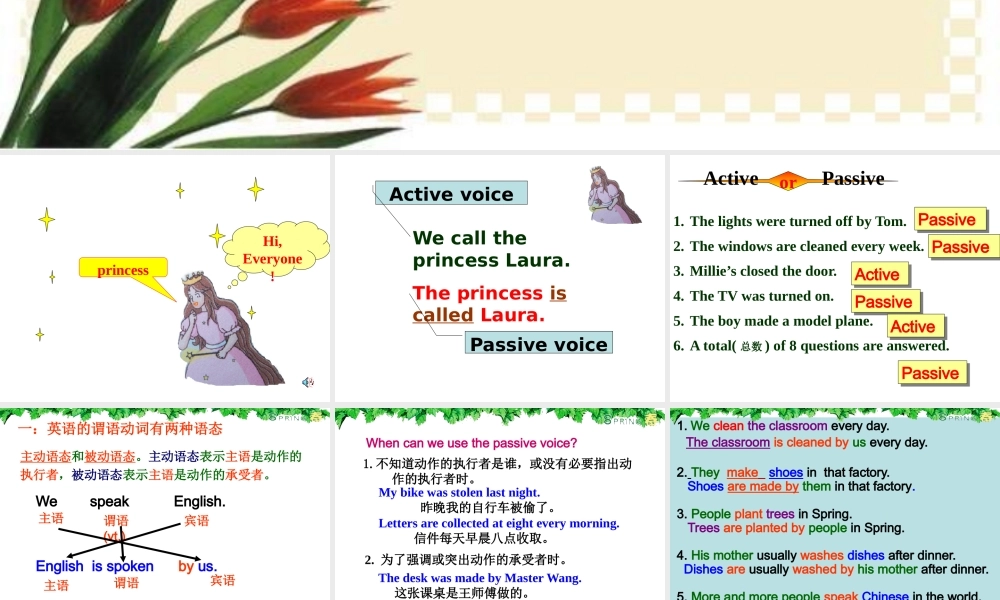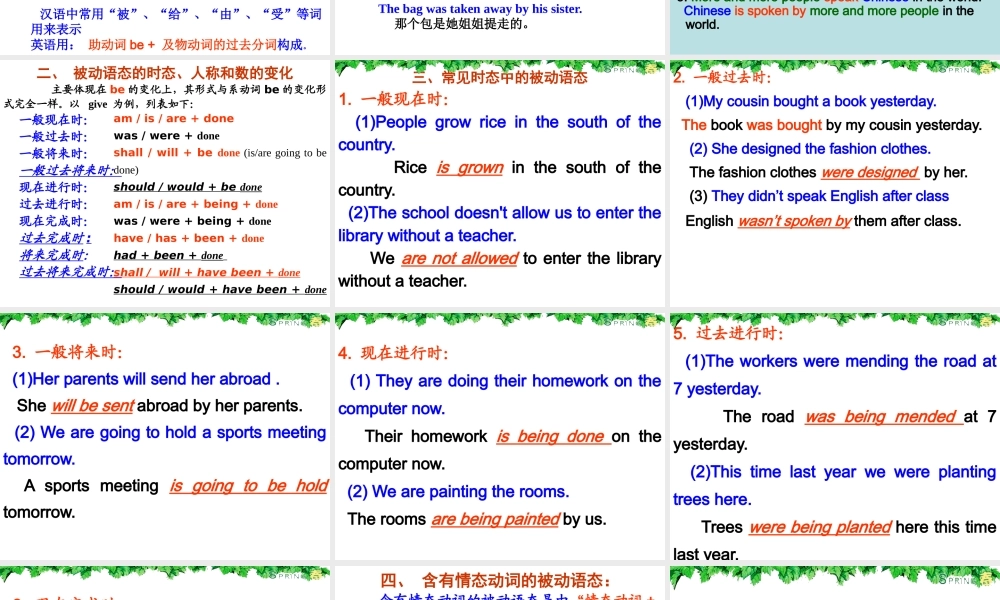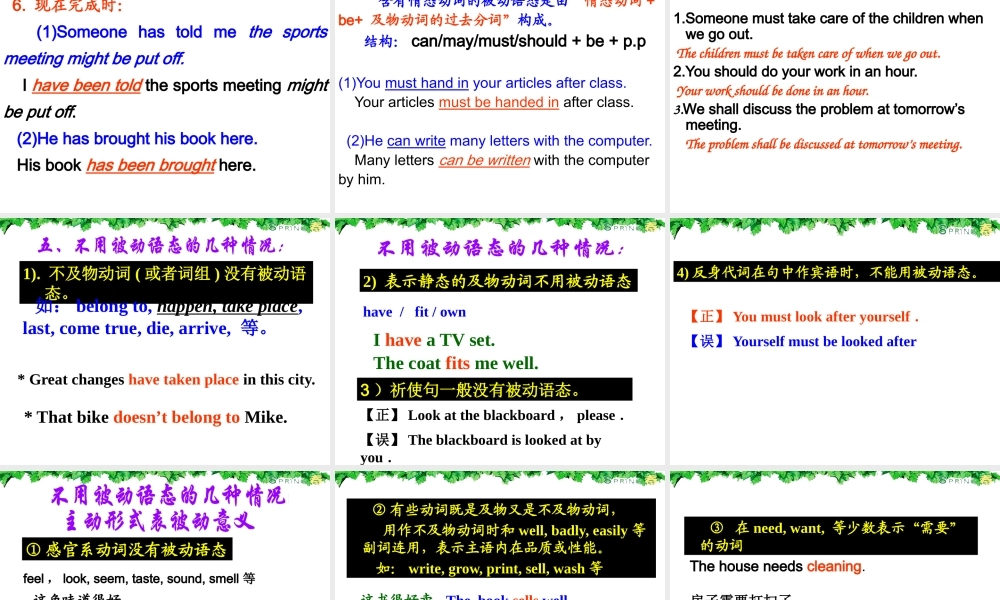. the Passive Voice (被动语态)princessHi, Everyone!We call the princess Laura.The princess is called Laura.Active voicePassive voice1. The lights were turned off by Tom.2. The windows are cleaned every week.3. Millie’s closed the door.4. The TV was turned on. 5. The boy made a model plane. 6. A total( 总数 ) of 8 questions are answered.orActivePassivePassivePassivePassivePassiveActiveActivePassivePassiveActiveActivePassivePassive一:英语的谓语动词有两种语态We speak English.主语谓语(vt.)宾语English is spoken by us.主语谓语宾语主动语态和被动语态。主动语态表示主语是动作的执行者,被动语态表示主语是动作的承受者。 汉语中常用“被”、“给”、“由”、“受”等词用来表示英语用: 助动词 be + 及物动词的过去分词构成。 When can we use the passive voice?1.不知道动作的执行者是谁,或没有必要指出动 作的执行者时。 My bike was stolen last night. 昨晚我的自行车被偷了。Letters are collected at eight every morning. 信件每天早晨八点收取。 The desk was made by Master Wang. 这张课桌是王师傅做的。 The bag was taken away by his sister. 那个包是她姐姐提走的。2. 为了强调或突出动作的承受者时。 1. We clean the classroom every day. The classroom is cleaned by us every day. 2. They make shoes in that factory. Shoes are made by them in that factory. 3. People plant trees in Spring. Trees are planted by people in Spring. 4. His mother usually washes dishes after dinner. Dishes are usually washed by his mother after dinner. 5. More and more people speak Chinese in the world. Chinese is spoken by more and more people in the world.二、 被动语态的时态、人称和数的变化 主要体现在 be 的变化上,其形式与系动词 be 的变化形式完全一样。以 give 为例,列表如下: 一般现在时: 一般过去时: 一般将来时: 一般过去将来时: 现在进行时: 过去进行时: 现在完成时: 过去完成时 : 将来完成时: 过去将来完成时: am / is...




